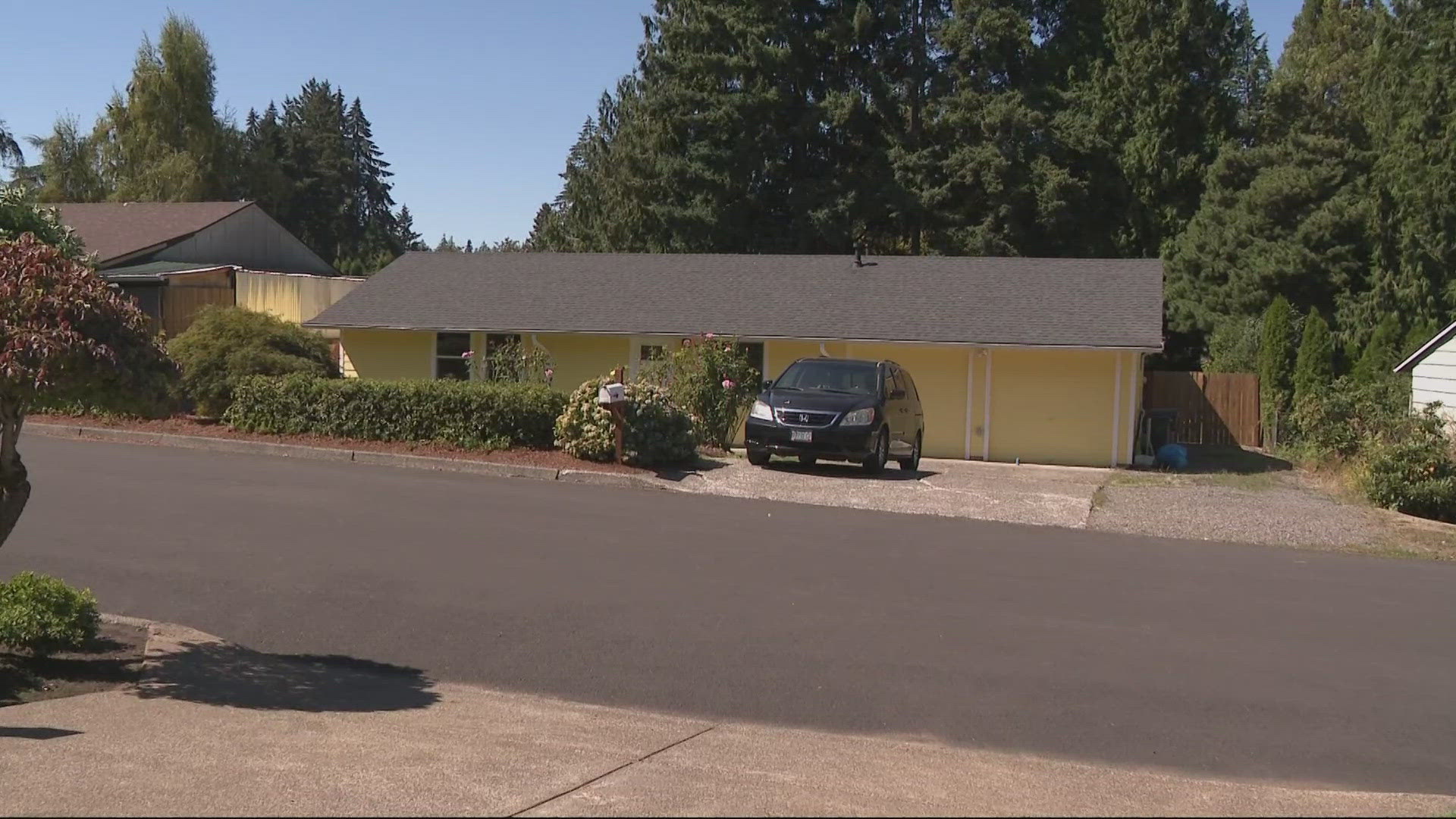MILWAUKIE, Ore. — There is a lot of focus on the lack of affordable housing, and the huge challenges people find in trying to pay for a place to live. But the housing crisis is not just for folks considered low income. Increasingly, middle-income people are having a hard time buying into homeownership.
Inside a yellow house on a quiet street on the edge of Milwaukie lives the Driscoll family, Darren and Deanna, and their children Adelaide, 11; Copeland, 8; and Ireland, 7. They are all experiencing the feelings that come with first-time home ownership.
“Oh, it's so great. It's finally feeling like home,” said Deanna.
“For the family ... just knowing that this is our home, that it's not a temporary thing,” added Darren.
The couple’s journey to buying their first home was about six years long.
As they began to think seriously about how to make it happen, the COVID-19 pandemic hit and made it more difficult to decide and commit. But when Darren’s career changed and income increased, they re-engaged into a still-difficult housing market.
“There were some hiccups here and there,” recalled Darren. “Like one of the big ones was interest rates jumping; that was a huge burden. It was like 'Oh, we're so close,' and then, we saw interest rates just keep climbing and we're just like, 'We're not going to be able to do it' and we had to wait a couple more years.”
But now, they have an updated four-bedroom single, bathroom home they and their three kids love.
How did they finally do it? The short answer: with some help.
And it started with the down payment. The Driscolls saved each month into an individual development account, or IDA.
It was matched three times over with federal funds through the nonprofit Portland Housing Center. The nonprofit, founded in 1991, has helped more than 10,000 families become successful homeowners through a variety of programs.
For the Driscolls, doing the IDA for their down payment required time, discipline and some required budgeting and homeownership education. But it got them over the first and probably biggest hurdle.
“Even higher-income borrowers, for first-time home buyers, oftentimes, the barrier to entry is the down payment,” said Dustin Johnsen, the Driscolls' loan officer.
Johnsen, with OnPoint Community Credit Union, knows firsthand the challenges many clients face.
He noted that a variety of options are available, from both private and government organizations, including OnPoint's zero-down program, which doesn't require you to pay for mortgage insurance. It comes with a higher interest rate, but it's a way to get started.
“It's one of the most popular programs I use for first time homebuyers because it gets you in the door,” said Johnsen.
Johnsen pointed out that you can always refinance later for better rates. Also, sticking with the same lender can save a lot on closing costs.
Because the Driscolls saved for their down payment with the IDA, they didn’t need the zero-down program, but they did go with an adjustable-rate mortgage, with a seven-year arm.
“So that locked us into a 7-year kind of guaranteed rate, which was low at 6.75%, which was comparably low at the time,” said Darren. That was in April.
And now, in September, they are loving their new reality, which includes space to play in an expansive backyard.
“I think when we saw the yard, it was kind of like, all bets are off ... this is what's going to be the ticket for these kids,” said Darren.
And that's good for everyone.
“We love this area. It's very quiet; the kids already have friends in this neighborhood, which we've never had before,” said Deanna.
The Driscolls’ big takeaway advice is to be patient but also be flexible, whether it's on the type of home or location, and have an open mind.
Johnsen said to have your financing figured out before you start shopping, so you know what you have to work with, including all the options that can make first-time homebuying possible. Then, if the numbers work, go for it.
Johnsen said he believes now is a good time to buy, as interest rates creep down and before the competition on the buyers’ side increases.
“I don't have any clients that call me a year later and tell me that they wish they were still renting, so if there's a way to find out how, and there probably is, it's worth doing it,” he said.

